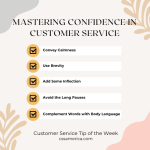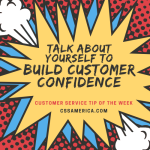We’ve designed a great number of surveys for municipalities and their agencies, focusing on customer satisfaction, perception, and awareness. What is so important with these government-based research instruments that is often downplayed or overlooked entirely is the focus on awareness.
Awareness questions typically focus on two areas: (1) Gauging the resident’s awareness of services and programs offered by the municipality and its agencies and (2) Gauging the resident’s awareness of processes – essentially how to do things.
These questions are vital because all the radio public service announcements, flyers, and government TV channels cost money; but the goal is not to implement a strategy to push information to residents. The goal is for the residents to understand, to remember, to be aware. So that awareness has to be measured – municipalities want participation (i.e., people using their parks, getting access to support services, attending events, and utilizing their recreation centers), and they want whatever revenue is associated with that participation.
But in this age of customer service being balanced with customer “self-service,” residents must also be aware of HOW TO do things. What’s the process to apply for Medicaid, to reserve a park shelter, update my business listing online, get a new recycle bin, or report that the neighbor puts oil down the sewer drain? The more educated residents are on how to do things themselves, the more efficient a municipality can be in providing that service since the resident either goes through the process on their own or they contact the right employee to help them the first time.
These principles are universal in business – customer awareness is a huge asset to any business wanting to grow (i.e., increasing awareness of products/services) and any business wanting to improve efficiencies (i.e., increasing awareness of service processes).
When you conduct your customer surveys, make sure you’re researching your customer’s awareness.
Interested in improving your company’s customer service? See more information at: http://www.cssamerica.com/





















